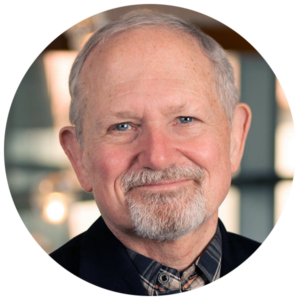
Interleukin 2(IL-2) Systems Immunology Modeling: Machine Learning for Cancer Immunotherapy
Clinical outcomes are correlated with aggregate B (BCR) and T cell receptor (TCR) diversity (the adaptome) in several infectious diseases and cancers. Advances in dimer avoidance multiplexed PCR (DAM-PCR) followed by next-generation sequencing (NGS) enable measurements of immune repertoire diversity and clonality, allowing prediction of cancer states and response to treatment. However, current diversity measurements generate an overwhelming amount of information (up to 1025 possible CDR3 variable region sequences ), which can mask cancer-specific and predictive information contained within small 3-6- amino-acid long motifs.. While deep learning algorithms are capable of powerful data-driven predictions, these approaches typically require large patient cohorts to make accurate predictions. Here we present a natural language processing model (NLP) model for early prediction of patient response to IL-2 immunotherapy capable of modeling a small patient cohort based on motif elucidation of CDR3 TCR and BCR clonotypes. Furthermore, we demonstrate the utility of analyzing all seven TCR and BCR chains for early detection and monitoring of patient states, providing new mechanistic insight into TCR and BCR orchestration during treatment.
Highlights
This webinar will demonstrate the utility of combining natural language processing (NLP) techniques with seven-chain analysis of patient immune repertoires for:
- Predicting patient responses to high-dose IL-2/HCQ cancer immunotherapy 15 days post treatment
- Temporally monitoring patient responses to HD IL-2/HCQ during treatment
- Providing a novel insight for observing T cell and B cell orchestration during treatment
For further details, please see the publication on this work: DOI:10.1136/jitc-2021-SITC2021.348
Speakers

Michael Lotze, MD
Dr. Lotze has worked in the field of immunology and clinical medicine for over 35 years and believes that a fundamental understanding of cancer biology and immunology is essential to making progress in oncology. He has over 500 publications in peer-reviewed journals and book chapters, a co-inventor of 10 patents in immunotherapy, and has held several leadership positions in the biopharmaceutical industry. Dr. Lotze is Professor of Surgery and Bioengineering, University of Pittsburgh; Vice-Chair of Research, Department of Surgery, University of Pittsburgh School of Medicine; and Assistant Vice Chancellor Sponsored Training Grants, University of Pittsburgh Schools of the Health Sciences. He currently serves as the Chief Cellular Therapy Officer at Nurix Therapeutics.

Jennifer Bone, PhD
Dr. Bone earned her bachelor’s degree in Physics and Molecular Cell Biology from UC Berkeley and master’s degree and PhD in Biomedical engineering from Carnegie Mellon. During her tenure at Carnegie Mellon, she earned a prestigious grant from the Center for Machine Learning and Health to develop machine learning algorithms that can make predictions from high-feature datasets. Dr. Bone currently leads data science, modeling, and informatics at Nurix Therapeutics.